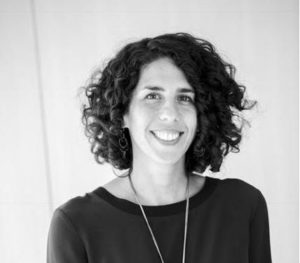Commentary on Parshat Matot–Masei (Numbers 30:2 – 36:13)
Standing on a dusty street in Tijuana last week, I spoke with a young man, who addressed me in unaccented English. “Are you coming from San Diego?” he asked, “I just got deported two days ago from San Diego. I don’t have any family here. I have no idea where to go.”
I had traveled to San Diego and Tijuana as part of a (July 2-3, 2018) clergy delegation convened by T’ruah. (Watch a video about the trip here.) We came from across the country, from across the denominational spectrum. A group of 25 rabbis and cantors came to the United States-Mexico border to call for the abolition of Immigration and Customs Enforcement (ICE) and the decriminalization of immigrants, and to learn more deeply about the plight of migrants and asylum seekers on the border.
The delegation visited two migrant shelters in Tijuana, one for men and one for women and children. At the shelters, the majority of the residents had been recently deported from the United States. The majority of those deported had lived in the U.S. for upwards of 15 years, some over 40 years. They had been forced to leave behind their children, the homes they were paying mortgages on, the jobs they’d been working for decades. Though many of them were originally from towns thousands of miles away, they weren’t ready to leave Tijuana: they wanted to be as close as they possibly could be to their children, to the lives they’d been ripped from.
Sign up to receive Torah from T’ruah in your inbox each week!
The young man and I regarded each other in silence for a moment. Behind us, 30 men queued in the street, waiting to eat lunch at the shelter. The bus that was waiting to take the T’ruah delegation back to San Diego rumbled before us. The impossibility of the border loomed between us. All of the human responses that his presence evoked in me felt squeezed by the border wall. In the face of the militarized border, I felt like we were without any options.
 In this week’s Torah portion, Matot-Masei, God commands the Israelites to construct arei miklat, sanctuary cities, to protect people from violence. These cities are meant for a specific group of people: those who had killed other people, unintentionally.
In this week’s Torah portion, Matot-Masei, God commands the Israelites to construct arei miklat, sanctuary cities, to protect people from violence. These cities are meant for a specific group of people: those who had killed other people, unintentionally.
These people are immediately at risk: the accidental killing sparks the possibility for revenge. Torah is aware of the danger of the “avenger of the spilled blood” and creates a mechanism to protect against human instinct. Rambam wrote in the Guide for the Perplexed: “A person who killed another person unknowingly must go into exile (Exod. 12:13, Num. 35:11-28); because the anger of “the avenger of the blood” (Num. 35:19) cools down while the cause of the mischief is out of sight.”
The person seeking refuge in the ir miklat [singular] is not actually guilty, but they face the threat of societal violence. To protect them, the Israelites are commanded to provide arei miklat. They know they must create a new possibility to stand in opposition to the cycle of violence, but they are not told how the cities are to function, how the people living there are to survive. Instead, they are simply commanded: v’hikritem lachem arim arei miklat – Make for yourselves sanctuary cities. (Num 35:11)
With the command to construct arei miklat, the Israelites receive a profound challenge: create new possibilities for yourselves, outside the context of violence and revenge. It’s a commandment to make manifest new possibilities so that those most persecuted can live with dignity. It’s a manifestation of the unwillingness to live as though only some in society were deserving of rights and respect. Our vision of justice must include everyone.
The command to make cities of refuge can be read as the command to transform the rhythms and expectations of our society. To hard-wire within the very design of our society an alternative to the whiplash cycle of persecution and cruelty. It’s a command to never be found as I was, on that dusty street in Tijuana, without any alternative to the banal brutality of our current immigration system.
Mijente, a visionary national Latinx organization focusing on migrant justice who organized the powerful march in San Diego on July 3rd, recently published a policy platform, Free Our Future: An Immigration Platform for Beyond the Trump Era, detailing how we might take steps to dismantle the forces of ICE in our communities. This platform allows us the ability to see beyond the cycles of violence, to imagine a world where families are not torn apart by deportation and the “zero tolerance,” immoral practices of the current administration. With this platform, Mijente offers us a window into how we might make for ourselves substantive and meaningful arei miklat, sanctuary cities, in our country.
This is a moment that demands from us clarity of vision and the courage to intervene in cycles of violence. We must carry the command given to the Israelites — this v’hikritem — that we might provide for ourselves the structures of justice, the discourses of truth, the relationships of healing that can breathe new possibilities into this world.
Rabbi Arielle Lekach-Rosenberg is the assistant rabbi at Shir Tikvah Congregation in Minneapolis, MN, where she is actively involved in the Sanctuary Movement. She is passionate about the intersection of prayer, music and activism and sings in the project Sefarad-Yerushalayim-New York, a celebration of liturgical poetry in the Sephardic world.

